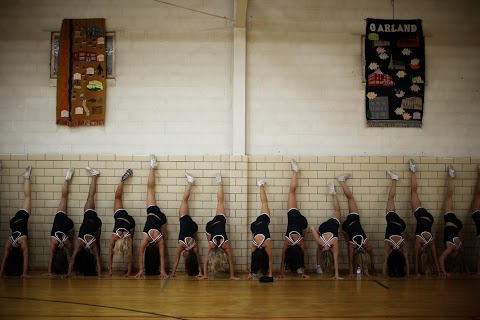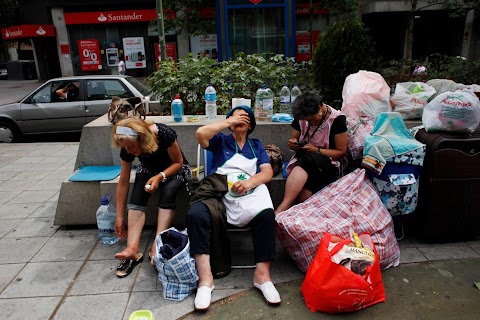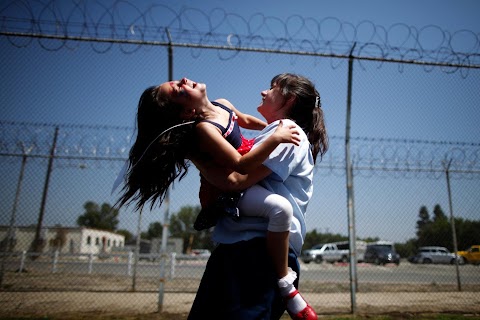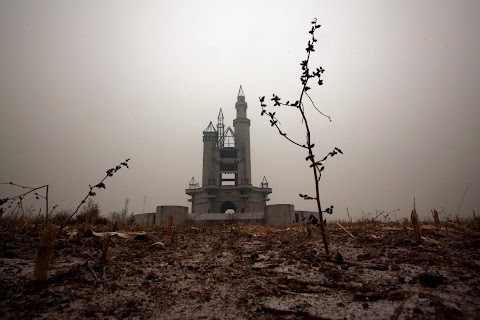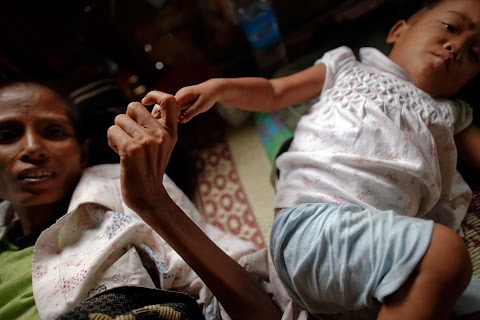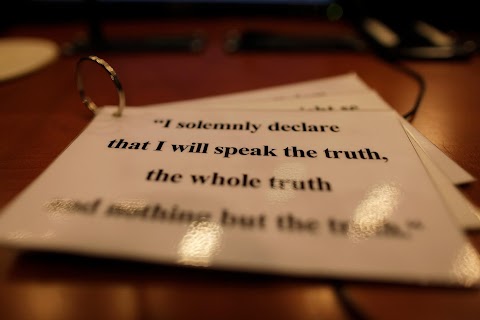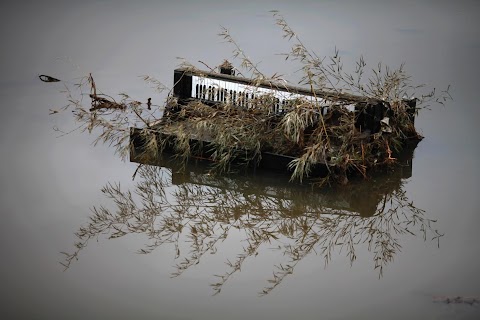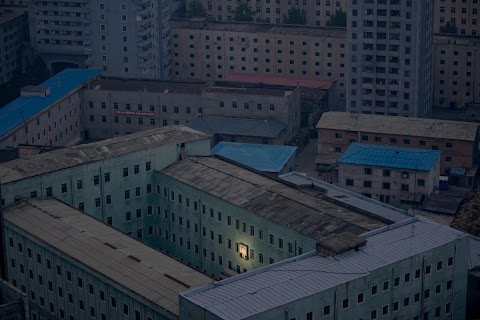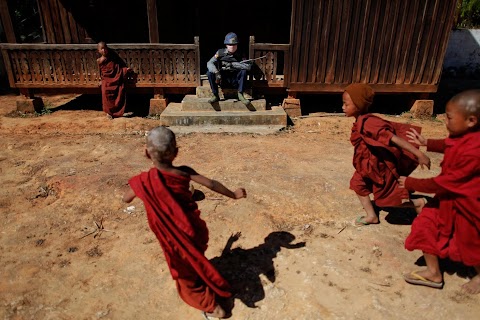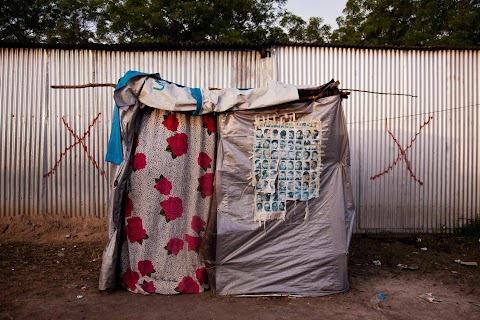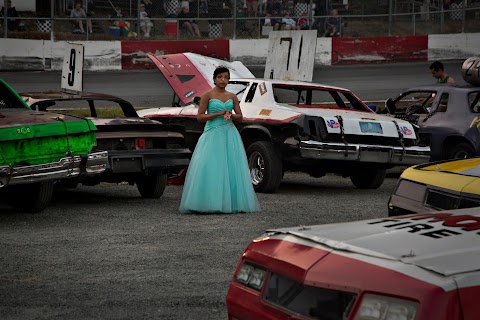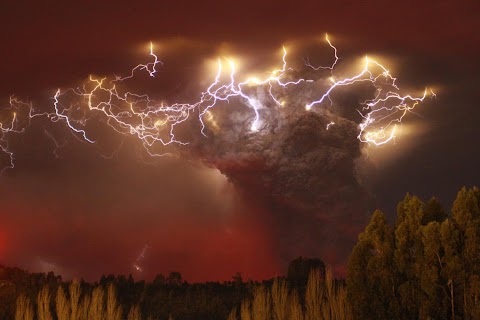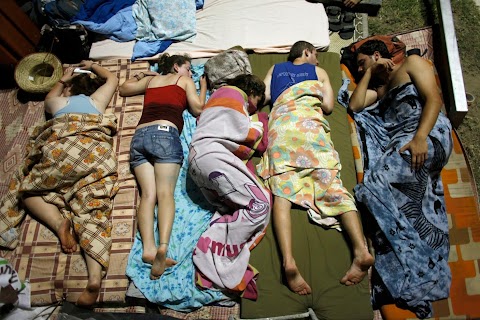
Tel Aviv's Tent City protest
Youths from an Israeli youth movement sleep on mattresses at a tent camp, part of a protest against the high cost of living in Tel Aviv. They, along with hundreds of Israelis, pitched tents on one of Israel's most expensive promenades to protest against property prices, spurring Prime Minister Benjamin Netanyahu's conservative government to free up state-owned land.

Israelis shout slogans during a march against rising property prices.

A boy sleeps in his father's arms as they take part in a demonstration calling for lower living costs and social justice.
Slideshow
![Kassa Yasso, 22, from Tel Aviv. "I immigrated to Israel with my family from Ethiopia when I was two years old. Since then I have always felt disconnected from social activities. Only when I came to visit a friend here did I [think] I should join. My financial situation as a young woman living in Israel is way too difficult. I face a housing problem at the moment and find it very hard, almost impossible, to pay my rent. This protest started with the general housing problem in Israel but went a long way since; today it deals with other social issues such as racism against refugees, including Ethiopians."](../images/OvarGu3Belsyxnll5FhK90gMVszX9a4Lw8bIkKm5tGTmGl8ccDdWLCIJndo7Z58Y2-UOppzshIyJmk01r5vNkw.jfif)
Kassa Yasso, 22, from Tel Aviv. "I immigrated to Israel with my family from Ethiopia when I was two years old. Since then I have always felt disconnected from social activities. Only when I came to visit a friend here did I [think] I should join. My financial situation as a young woman living in Israel is way too difficult. I face a housing problem at the moment and find it very hard, almost impossible, to pay my rent. This protest started with the general housing problem in Israel but went a long way since; today it deals with other social issues such as racism against refugees, including Ethiopians."

The tent of Kassa Yasso, 22, from Tel Aviv.

Itzchak, 23, a construction worker from a religious community in south Israel. "The issue of getting the Israeli people to be more united is my main motivation for being here. I get the chance to sit and actually talk and listen to people from many different backgrounds and origins such as Russians, hippies, right and left wingers, religious and seculars, and the fact that we sit together and spend time together everyday or most of the day is a step towards unity. It might happen that, because of family or work, I will have to leave the camp at some point, but even then I'm planning to come back and spend a bit of time here so that I'll still be part of this ongoing change together with everyone."

The tent of Itzchak, 23, a construction worker from a religious community in south Israel.

Shlomo Kaspi, 62, a veteran protester and former Black Panther. "As someone who was in the centre of social uprisings in Israel in the 1970s, I came to support the fight for justice and equality. I came here also as I am facing a personal housing problem at the moment, and I have nowhere else to go, basically. As soon as winter comes, if that is what needs to be done, I'll build a little shelter and stay here as I have no other choice. This struggle has to take a more aggressive direction because, from my experience, nothing will change by sitting, talking and being nice. When it comes to protests about these types of matters and it doesn't get violent, it will fade away and go into the basket of history and nothing will really change."

The tent of Shlomo Kaspi, 62, a veteran protester and former Black Panther.

Shai Dagan, a 42 year-old sound man. "I see this protest as something in the core of Israeli society. Financially, life here is just too difficult. The fight to make a living even for people who have a decent job creates a lot of side effects in terms of daily interactions between people and towards the system. People are bitter and angry in a country that is rich but the people are poor. Even in months when I get work every day I can't make more than a very basic living and that means something is wrong here."

The tent of Shai Dagan, a 42 year-old sound man.

Alina, 24, homeless and voluntarily unemployed. "The protest is part of an ongoing process which started a few years ago in Israel. It calls for simplicity, for a focus on the important things in life. Running after money and materialism brought us to a dead end and I am here to be part of a change when it happens. Nothing external will take me away from the boulevard, the decision to stay or leave is a personal decision."

The tent of Alina, 24, homeless and voluntarily unemployed.

Beni Zeevi, 47, a hairdresser. "I joined the protest two days after it started and set up my tent on Rothschild Boulevard. I joined the protest to show my solidarity with its demand for change. Personally, I work and make a reasonable living, but the direction Israel is going in, especially with regards to socio-economic issues, is wrong. I support a dramatic change of the Israeli leadership's priorities and this protest is another step in the direction towards a change. As long as the protest is not violent or too cynical and the atmosphere is good, I don't see a reason to stop it."

The tent of Beni Zeevi, 47, a hairdresser.

Eyal Hukayma, a 29-year-old handyman. "I set up my tent in Rothschild Boulevard on the first day of the protest some three and a half weeks ago. As a young man I see the economic erosion of the middle class in Israel and cannot see a future for myself. When I think about getting married and building a family, I cannot see how this is possible when the cost of living is just too expensive and for no reason. Also, for so long many social classes were deprived and this creates a situation where many families cannot advance and grow."

The tent of Eyal Hukayma, a 29-year-old handyman.

Maayan Fogel, 26, a design student. "I know nothing about economics but it is very clear to me that the resources don't get used well. The job of our government is to find solutions so that the system will work more efficiently. Going out to the streets creates a much better and more direct link between the people and the government. We came to stay, the problems are endless and I don't expect things to be corrected overnight. At the same time, I'll stay here for as long as it takes, though the change Israel needs is a shift of consciousness which should come from each individual."

The tent of Maayan Fogel, 26, a design student.
Video
Israelis take part in a demonstration at 'kikar ha'medina', which means the Country Square, calling for lower living costs and social justice.

